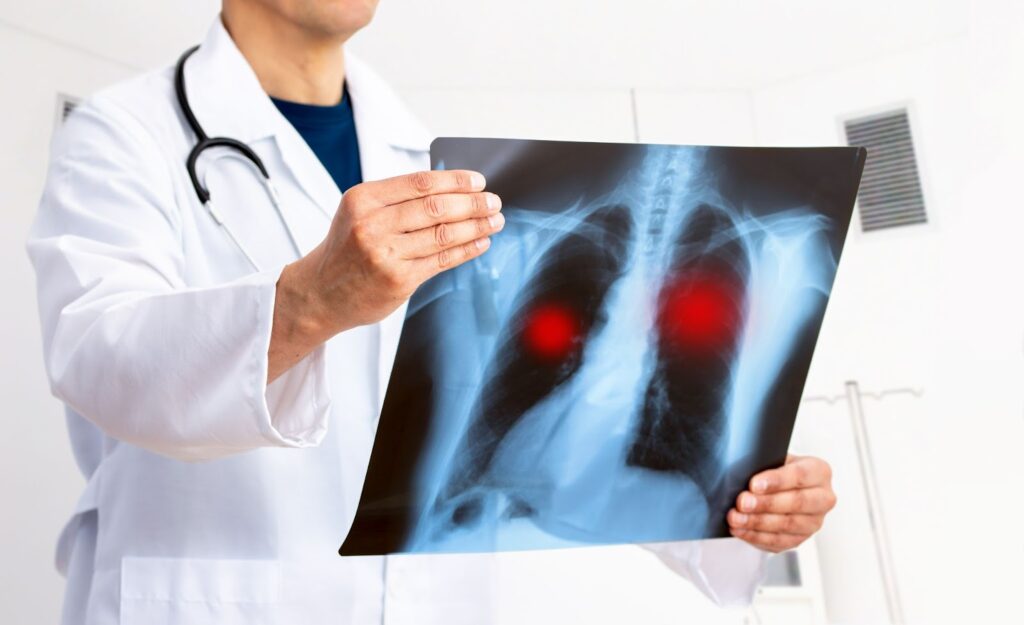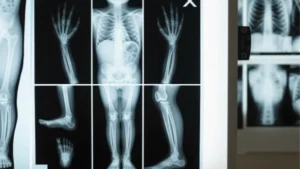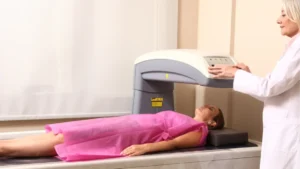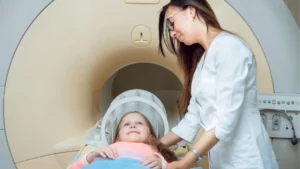Lung cancer is the second most common cancer worldwide and one of the leading causes of cancer-related deaths. The key to improving survival rates lies in early detection, as catching the disease in its initial stages greatly increases treatment success. But how can this be achieved effectively? What scan detects lung cancer?
In this article, we’ll explore the uses and benefits of CT scans for lung cancer detection, a game-changing diagnostic tool that allows doctors to see detailed images of the lungs and identify abnormalities early. If you’ve ever wondered, “Can lung cancer be diagnosed from a CT scan?” or “What does a CT scan show for lung cancer?” this article will walk you through everything you need to know, from how the procedure works to its benefits and why it’s essential for those at risk.
Importance of Early Lung Cancer Detection
Lung cancer symptoms often appear in its later stages, when treatment becomes more challenging. Early detection is critical to catching the disease before it spreads. Studies show that patients diagnosed with lung cancer in its early stages have a significantly higher survival rate compared to those diagnosed later.
Is a CT scan good for detecting cancer?
CT scans provide a reliable and accurate method of detecting lung cancer early, even before symptoms develop. This not only increases the chances of successful treatment but also helps reduce the overall burden of the disease. For individuals at higher risk, such as smokers or those with a family history of lung cancer, regular screening with lung scans for cancer can be life-saving.
How Does a CT Scan Help in Detecting Lung Cancer?
A CT scan in lung cancer uses advanced imaging technology to create detailed cross-sectional images of the lungs. This allows doctors to detect abnormalities, such as small nodules or tumors, that may not be visible on a traditional chest X-ray.
If you’re asking, “Can a CT scan detect lung cancer accurately?” the answer is yes. CT scans are among the most precise tools available for diagnosing lung abnormalities. They provide high-resolution images that can differentiate between benign and malignant conditions, helping doctors make informed decisions about further testing or treatment.
How accurate is a CT scan for lung cancer?
CT scans are highly accurate for detecting lung cancer, particularly in its early stages, with sensitivity rates of around 80-90% in high-risk individuals. They outperform traditional X-rays by identifying small nodules or abnormalities that may otherwise go unnoticed, making them a vital tool for early detection and improving survival rates.
While CT scans can’t definitively confirm whether a nodule is cancerous, they are excellent for identifying potential concerns and staging lung cancer to guide treatment. Though false positives can occur, especially in high-risk groups, the benefits of early diagnosis through CT scans far outweigh the risks, offering a critical advantage in managing lung health.

Who Should Get a CT Scan for Lung Cancer?
Not everyone needs regular lung cancer screenings, but certain individuals are at higher risk and should consider scheduling a CT scan. Here’s a breakdown of who benefits most from these screenings:
Current or Former Smokers
Those with a history of heavy smoking (typically 20 pack-years or more) are at significantly higher risk of developing lung cancer.
People Aged 50 to 80
Most lung cancer diagnoses occur in this age group, making screening essential for early detection.
Family History of Lung Cancer
If a close relative has been diagnosed with lung cancer, your risk increases. Regular screenings can help catch the disease early.
Occupational or Environmental Exposure
Prolonged exposure to asbestos, radon, or other carcinogens raises the likelihood of lung cancer.
Chronic Lung Diseases
Conditions like COPD or pulmonary fibrosis increase vulnerability to lung cancer, making screening with a CT scan for the lungs advisable.
If you belong to any of these groups, discuss with your doctor whether you should undergo regular screening.
The Process of a CT Scan for Lung Cancer
A CT scan lung procedure is quick, painless, and non-invasive. Knowing what to expect can help ease any concerns you might have.
Preparation Tips for Patients
- Follow Pre-Scan Guidelines
Depending on your doctor’s instructions, you may need to avoid eating or drinking for a few hours before the scan.
- Dress Comfortably
Wear loose-fitting clothing and avoid jewelry, as metal objects can interfere with the imaging process.
- Share Medical Information
Let your doctor know if you’re pregnant or have any existing conditions, as this may affect how the scan is conducted.
What to Expect During and After the Scan
- During the Scan
You’ll lie on a motorized table that slides into the CT scanner, a doughnut-shaped machine. You may be asked to hold your breath briefly to ensure clear images. The scan typically lasts 5-10 minutes.
- After the Scan
Once the scan is complete, you can resume your normal activities immediately. Your doctor will review the results and discuss any next steps.

Benefits of CT Scans in Lung Cancer Detection
CT scans are highly effective in identifying lung cancer early and offer numerous benefits over traditional diagnostic tools. Here’s why they’re an essential part of lung cancer detection:
Early Detection Saves Lives
CT scans can identify lung cancer at its earliest and most treatable stages, improving survival rates dramatically.
High-Resolution Imaging
These scans provide detailed images of the lungs, enabling doctors to spot small nodules or tumors that might be missed with a standard X-ray.
Non-Invasive and Quick Procedure
Unlike invasive biopsies, CT scans are painless and fast, making them a convenient option for regular screenings.
Low-Dose CT for Screening
Low-dose CT scans minimize radiation exposure while still offering excellent image quality, making them a safe option for repeated use.
Accurate Staging of Lung Cancer
If cancer is detected, CT scans help determine its stage and whether it has spread, which is vital for choosing the right treatment plan.
Differentiating Between Cancerous and Benign Conditions
CT scans can distinguish between malignant tumors and non-cancerous abnormalities, reducing the need for unnecessary procedures.
Cost-Effectiveness for High-Risk Groups
While the CT scan for lungs price varies, it is a cost-effective option compared to the high costs of late-stage cancer treatment.
Monitoring Over Time
For patients already diagnosed with lung cancer or at high risk, regular CT scans allow doctors to track changes and ensure timely interventions.
The Future of Lung Cancer Detection and CT Scans
As technology continues to advance, the future of lung cancer detection looks promising. Innovations like artificial intelligence are being integrated into imaging systems to improve accuracy and speed up diagnoses. Emerging techniques, such as molecular imaging, may also enhance the ability to identify cancer at even earlier stages.
These advancements aim to make CT scans for lung cancer detection more accessible and effective, ultimately saving more lives.
Take Control of Your Lung Health with One Step Diagnostic
Early detection of lung cancer can be life-saving, and CT scans are one of the most reliable tools for achieving this. For reliable CT scan services, visit One Step Diagnostic today. One Step Diagnostic specializes in advanced imaging solutions, offering state-of-the-art CT scans for lung cancer detection and more. For additional details, check out their medical diagnostic imaging services or contact them.
Don’t wait—early detection saves lives! Take the first step toward better lung health today.




